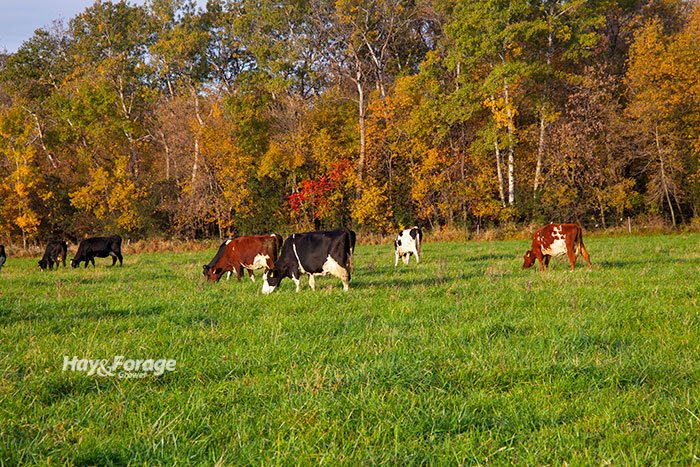
A person could wallpaper the outer walls of the Washington Monument with pages from the scientific literature, extension fact sheets, and the popular press that contain information on why overgrazing pastures should be avoided.
On these pages, you’ll find ample evidence that overgrazing will:
• Delay plant regrowth and recovery, setting the pasture up for another round of overgrazing
• Inhibit the development of new tillers
• Result in the removal of plant carbohydrate storage structures at the base of the plant
• Encourage weed encroachment
• Severely impact root mass and growth
• Make soils more vulnerable to erosion
• Negatively impact livestock performance
In short, if Moses was to descend the silo with grazing tablets in hand, “Thou shall not overgraze” would likely be Number 1 on Tablet 1.
The fall offers a time of year when overgrazing may be double trouble. First, plant regrowth is slowed, and the regeneration of top growth and root mass diminishes as winter approaches. Removal of those lower grass stems means that carbohydrate reserves are severely compromised.
Overgrazing in the fall also reduces the number of late-season tillers that are formed.
Fall exceptions
So, let’s be clear, this article isn’t offering a pass to overgraze during the fall, but there might be two good reasons to cautiously overgraze a limited number of pastures or paddocks.
In specific situations, overgrazing is an effective strategy to stagger spring regrowth. Grazing certain pastures shorter in the fall will delay green up in the spring, and these paddocks can be set aside for the back end of the grazing rotation next year. It offers one means of controlling what is commonly referred to as “the spring flush.”
Another case where overgrazing in the fall might be beneficial is for paddocks that will be frost seeded next spring. Overgrazing, or at least getting growth down to a 3-inch stubble, in the fall will expose more bare soil for improved seed-to-soil contact, and this will also reduce early competition from existing plants with the new seedlings.
Two reasons. That’s it. Otherwise, listen to Moses.

